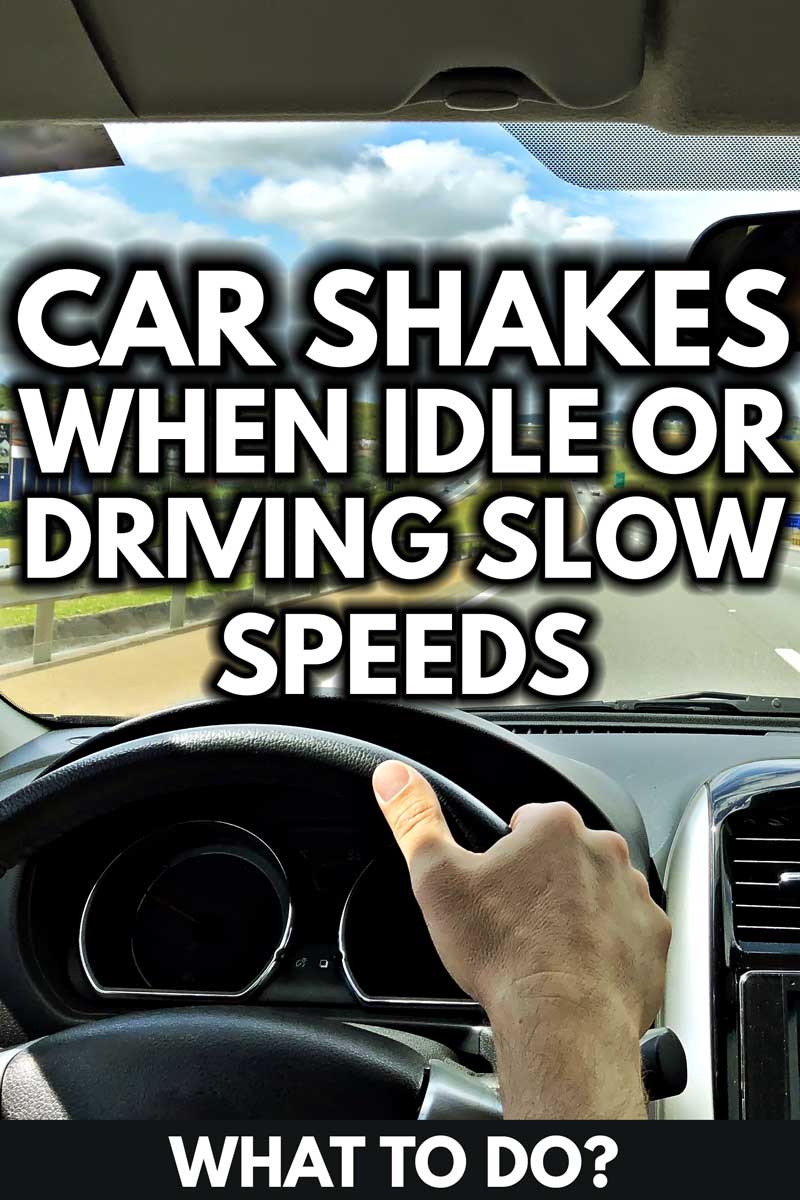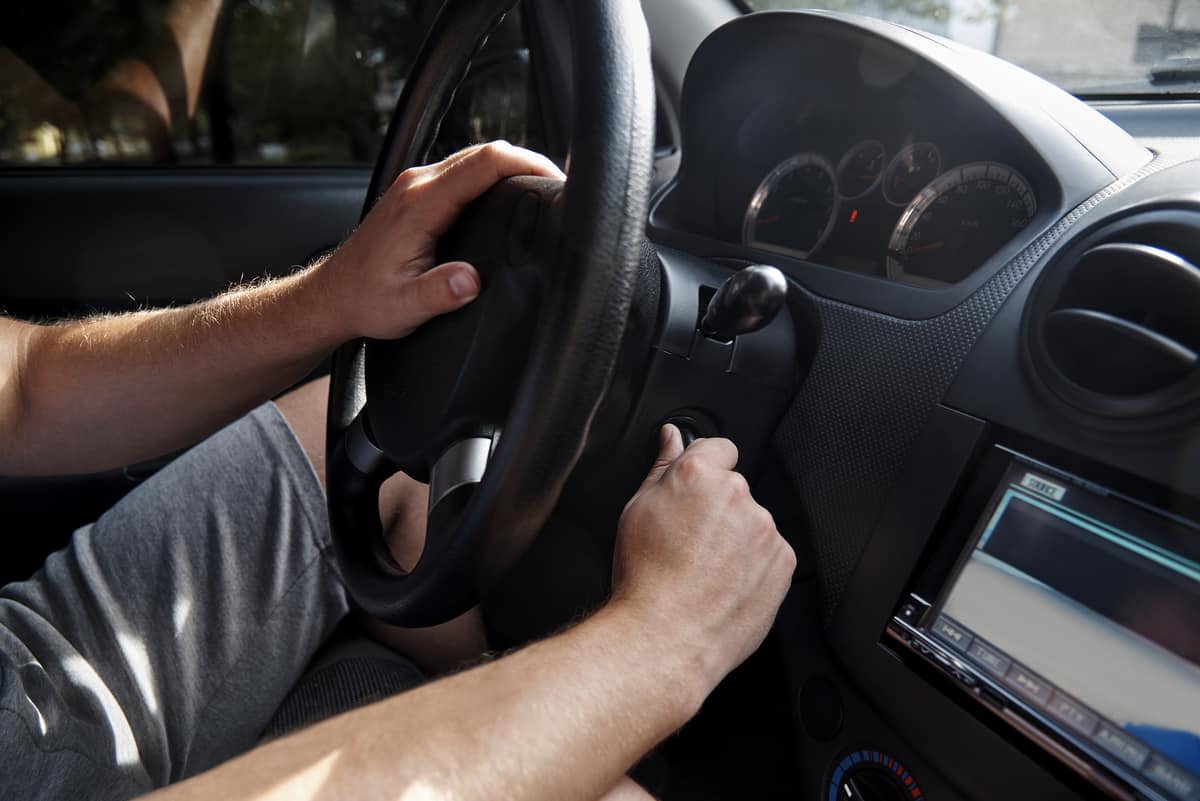 The way your car sounds and feels should be the same every day. When your engine is running, you might feel some slight vibrations or a bit of humming. It should be soothing, not alarming. There are a lot of moving parts under the hood. A mild vibration is fine. But if your car shakes while idling or driving at slow speeds, there could be a problem.
The way your car sounds and feels should be the same every day. When your engine is running, you might feel some slight vibrations or a bit of humming. It should be soothing, not alarming. There are a lot of moving parts under the hood. A mild vibration is fine. But if your car shakes while idling or driving at slow speeds, there could be a problem.
A car that feels like it’s shaking, vibrating, or idling roughly means it’s time to troubleshoot. The most common reasons for these symptoms are as follows:
- Bad Spark Plugs
- Loose or damaged timing belt
- Loose or disconnected hoses
- Fuel intake issues
- Broken engine mounts
Bad spark plugs
If the spark plugs are worn out, dirty, or faulty, the fuel and air mixture won’t ignite the way they should in the cylinders. This will lead to a misfire, and the engine will vibrate. Installing new spark plugs will solve the problem.
Loose or damaged timing belt
The timing belt synchronizes parts of the engine. If belts are loose or damaged, your car will vibrate. Your vehicle needs the timing belt to function. Other engine belts need to run correctly, as well. Get your belts checked out and inspected regularly.
Loose or disconnected hoses
Vacuum hoses control the emission of engine exhaust fumes. It they are loose, damaged, or worn, your engine will shake. The hoses should be checked out regularly by your mechanic. Replacing or reattaching hoses will solve the issue.
Fuel intake issues
Your car’s fuel intake system is responsible for delivering dirt-free fuel and air to the engine. If the intake is clogged or damaged, your engine will suffer from dirty fuel. A clogged fuel filter cuts off the fuel that is traveling to your engine. Vibrations will occur as the engine shakes at idle. It’s time to clean your car’s fuel intake system and filter.
Broken engine mounts
The engine mount holds your car’s engine in place. If it’s loose or broken, the engine will shake. It’s time to have it inspected and repaired if needed.
When you experience a rough start, and your car is shaking, it’s time to see your favorite mechanic.
We touched on some common reasons for your car to shake at idle or low speed. Continue reading as we explore these issues more in-depth and answer a few more shaking questions.
Why Does My Car Shake When I Start It?

In addition to the common issues we have discussed, there are a few more components to consider if your car shimmies as you crank it.
Filthy air filter
Your car’s air filter helps keep your fuel clean. Once the screen is contaminated with dirt, the air supply is diminished. The air-to-fuel mixture gets out of whack, and the engine will feel jerky and shaky at startup. A lack of air means a lack of fuel, and your engine gets the shakes.
A dirty air filter can also impact spark plugs. Grimy spark plugs will misfire, and you will feel it.
A clean air filter will keep your car running smoothly. It’s recommended that you replace the air filter every 15,000 to 30,000 miles. Depending on your driving conditions, you should regularly check that the screen is clear of debris.
Fans and blowers
Less common problems to be aware of are the fans in your car. A broken radiator fan can cause vibration. And your cooling/heating system puts a lot of strain on the engine. If you turn the system on and the car starts to shake or vibrate, there might be an issue with the blower or one of the fuses. Either of these parts can cause wobbling at idle and should be checked out as soon as possible.
Also, if you hear a loud noise while the car is vibrating, your transmission or drive train could be on the way out. Head to the repair shop or dealer as soon as possible.
Chilly climate
As the temperatures drop, your engine might take longer to warm up. A cold engine can vibrate more than usual in those extremely low temperatures. Let the engine run a few minutes. As it warms up, the shimmy should go away.
If the vibrations continue, there might be an issue with a part in the engine.
What Can Cause My Car To Shake At Low RPM?
A reasonable idle RPM (revolutions per minute) for your vehicle depends on your engine. Even if you don’t know what type of engine you have, an idle between 600 to 1000rpm is fine.
At this range of idle, it’s typical that your car stays at a constant RPM—it shouldn’t be going up and down. And, your vehicle should not shimmy or shake at idle, or when you begin to accelerate. Here are some other potential problems to be aware of:
Warped brake rotors
A rotor is an integral part of the brake system. Once it begins to shift to a flat shape, it can cause vibrations. The solution is to have a mechanic or trained professional take a look and evaluate the brake system. As you begin to accelerate or place your foot on the brake, any shaking could indicate an issue with the rotors.
Wheel Imbalance
Super dirty wheels with caked-on dirt can cause the wheels to be off-balance. Your car will start to shake and vibrate as you move out of idle if anything is out of whack. Your tires and wheel wells should be cleaned regularly.
Fans and blowers
Those engine fans and system blowers can also contribute to the shaky start. If you have turned on the A/C, take note of the RPMs and any vibration you feel. Anything more than a slight hum or tiny movement in the RPMs could be a warning sign.
Should the RPMs drop while you are driving, you will feel the car engine shimmy and shake. The drop is an indication of engine trouble. It could be attributed to one of the issues we covered in this post, but it’s best to have a pro check it out.
If your car shakes at a low RPM, it’s time to have a professional go through the engine and figure out the issue.
Why does my car shake when at idle then smooth out after accelerating?

If you feel the shaking when you start the car or are sitting idle, you can rule out tires, axels, or wheels as the culprit. It’s likely an issue with one of the engine components.
A cold engine could be the cause and will go away once the engine warms up.
A tremendous amount of parts are working together in harmony under the hood. It’s not normal for your car to vibrate, shake or rattle at idle or at all. We’ve discussed engine mounts, belts, and fuel systems as common problems. We've also covered spark plugs, hoses, and filters.
Any issue at idle, whether it be a shake, a vibration, or a loud noise, should be checked out—even if it feels like it’s smoothing out as you accelerate. A shaky car is not a healthy car.
Shake, Rattle, And Roll
We have listed several causes attributed to vibrations in this post ranging from faulty spark plugs to dirty air filters and broken engine mounts.
Your vehicle should always run smoothly. Rough, shaky idling is not normal. These symptoms are signaling a problem with a part of your engine. It’s time to get your engine checked out. Keep in mind that if the vibrations still occur at a low speed, your wheels, tires, brakes, or steering could be the problem. It’s a good idea to have those looked at as well.
A reputable mechanic or repair shop will inspect your car and run diagnostics to find the issue. Your vehicle should not shake at idle or slow speed. Get it checked out and get back on the road with a smooth vibration-free ride.

I discovered that when I bought the Toyota Corolla sport, I feel the vibration when at a traffic when I put on the AC. The former told me that I should do the engine seat to make it balance. The Mechanic I gave it to told me it’s not the engine seat but to service injector. I got so tired and I believe I could see something to gain here.
Besides I live in a sunny side of Africa, I was told I need to convert the termo- stat for my engine.
Thanks for the comment, Emmanuel. We hope our guide helped you better diagnose your car issue. Best of luck!
i am from bangladesh and the octance here isnt marked RON, leaded, unleaded, ethanol etc….i used octane from one station and my car ran fine, then i tried another different gas station and with the new feul the car started to shake….i’ve read the article above and assume that my problem could be the injectors…my question is…could bad quality feul make my car shake? i mean could the quality of feul be a reason for the car the shake (vibrate)?
thanks